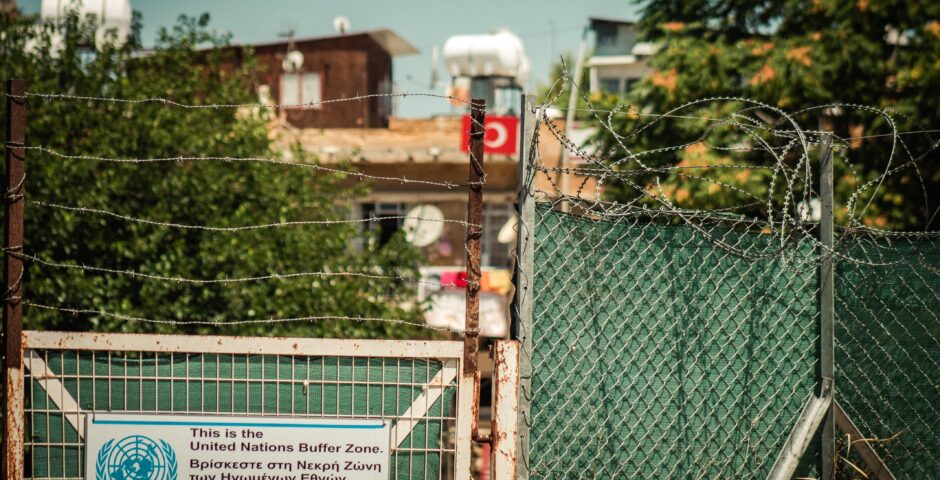A year worth fighting for

A reflection of the challenges of 2021 and the opportunities of 2022
Now the New Year’s Eve celebrations are disappearing from the rear-view mirror, we wanted to briefly reflect on some of the biggest challenges the EU has faced last year and consider what the first full year in a global pandemic has brought the Union. Crises abound as a matter of course, but we believe it’s the advances we have made that deserve the most attention.
Challenges abound
2021 has been a strange and challenging year for the EU. It started with the UK finally leaving the bloc after years of negotiations and political bickering on both sides of the channel. Within the same week, across another body of water, a former bastion of democracy and the EU’s staunchest ally nearly succumbed to a thinly veiled insurrection backed by its outgoing president.
Later in the year, other issues of geopolitical importance emerged, especially on the EU’s eastern bounds. A build-up of Russian troops on Ukraine’s border, migrant flows orchestrated by Belarusian dictator Lukashenko as a ploy to pressure the EU, and ill-conceived demands by Putin for NATO to withdraw its forces from eastern EU member states all highlight the threats the EU faces close to home.
Other crises also emerged, with violence intensifying in Mali, Ethiopia, Sudan, Western Sahara and Venezuela and of course the botched withdrawal of Western forces from Afghanistan, resulting in the tragic and disastrous fall of Kabul. Which has now turned into an enormous human rights calamity – highlighting again how important it is for the EU to achieve strategic autonomy from the US.
Perhaps most important, from a global perspective, is the 26th Conference of the Parties (COP) held in Glasgow. A mixed bag overall, with the world still falling short of limiting global warming to 1.5 Celsius and remaining off track to adequately deal with coal usage, deforestation, and the looming and very important question of financing sustainable development in the global south by developed economies. Despite the EU and others’ stated commitment to reach net-zero emissions by 2050, the current trajectory is not yet enough to meet the 1.5 Celsius goal – more work and concessions will be needed.
All of this took place against the backdrop of a pandemic that has carried on longer than many of us might have hoped a year ago, when the prospect of the widespread implementation of vaccines allowed us to think once more of a world without covid. Now, in the first days of the new year, we are beginning to understand that we must find a way to live with the virus, the emergence of the recent Omicron variant having yet again strained European citizens’ resilience.
Silver Linings
And yet there are silver linings to the issues just highlighted. The UK finally leaving the bloc also means that the day to day operations of the EU are not burdened by the divorce procedure and while UK politicians might still try to circumvent and undermine the agreement, the UK public increasingly wants its government to move towards constructive cooperation. The start of the Biden presidency has, while flawed, meant that there is more environmental and democratic alignment with the EU. It also means a chance for the USA to repair its institutions and continue its long tradition of democratic governance, hopefully denoting a long term realignment away from destructive partisan governance towards more cooperative strategies – although we must admit that the notion of resurgent “small d” democratic politics in the US seems fanciful.
Then there is the situation on Europe’s eastern borders and the fall of Afghanistan. The dependence on NATO as a deterrent of Russian aggression has sidelined the EU in negotiations with Putin, while the withdrawal from Afghanistan has shown the fallacy of complete military reliance on the US. Both the EU bureaucracy and national governments from across the Union now recognise that moving towards a military force that can act independently of the US is paramount to achieving strategic autonomy and protecting EU interests – both in relation to Russia and in foreign affairs further away from EU proper.
On the climate front, the EU has also taken great steps. Aside from being a leader in the global climate debate, the commission has expanded its tooling for the green transition by overhauling climate policies and introducing more stringent climate readiness evaluations with its “Fit for 55” package. It has also made climate neutrality a central part of the proposal requirements member states’ need to comply with to receive their allocated share of the €800+ billion “NextGenerationEU” COVID recovery plan. Together these steps mean that the EU is on its way to being climate-neutral by 2050, in line with the EU’s commitment to tackling climate change under the Paris Agreement. They also mean that the EU has the chance to take the lead in developing new, green technologies, a course which may result not only in a successful climate strategy, but also offers EU industries the chance to gain a long term competitive advantage by being at the forefront of future green tech.
Then finally, the virus in the room. Let’s go back to January 2021, the European Union’s vaccination drive is coming under intense fire for being behind the UK and the US, and Eurosceptics from across the Union point to the Commission’s prioritization of solidarity between EU countries ahead of enabling individual governments to manoeuvre of their own accord. Another EU attempt to gain more power at the cost of member states! Yet, only a few months later the picture looked completely different. The entire EU was getting vaccinated at roughly the same time, pre-empting potential further divisions in the bloc caused by vaccine inequality across borders in a Union which supposedly does not have any. While the collective response had teething problems, the commission managed to create a new structure for EU cooperation in record time in a field in which prior it had virtually no experience. In building a new EU Health Emergency Preparedness and Response Authority (HERA), The Union now has the institutions necessary to collectively prepare for, respond to, and recover from health emergencies, a capacity sorely needed in a continent without internal travel restrictions.
The importance of looking forward
So now we find ourselves in early 2022. The world is still struggling to get to grips with COVID, yet there are signs of hope and of social and economic renewal. Governments across the Union are ever more committed to climate change, the EU’s Green Deal will enable many countries in Southern Europe to finally invest in the digital and green infrastructure they so sorely need, and talks are underway to organise a stronger and more unified response to the challenges presented by China, Russia as well as a, potentially, a more autocratic US. Perhaps most importantly for the stability of the EU is the broad decline of populist parties throughout the Union, with YouGov-Cambridge Globalism Project’s annual populism tracker showing that voters, on average, are becoming more moderate and less easily persuaded by extremist parties.
Overall, the EU will have to face many of the same challenges this year as it did in 2021, which to some may seem like a gloomy prospect. The reality is that we live in strange and challenging times, faced with many issues we had not dreamt of having to deal with just a decade ago. But this is not the time for European citizens to sequester nor should we allow ourselves to become complacent out of a feeling of helplessness. We are all in control of our own future and now, perhaps more than ever in the brief history of this Union, we stand up for our democratic ideals of equality and common prosperity.
Marnix Vermeer obtained a Master in Economics: Global challenges and macroeconomic policy from Maastricht University, and is currently pursuing a Master in International Relations in Barcelona.
Image: Shutterstock




